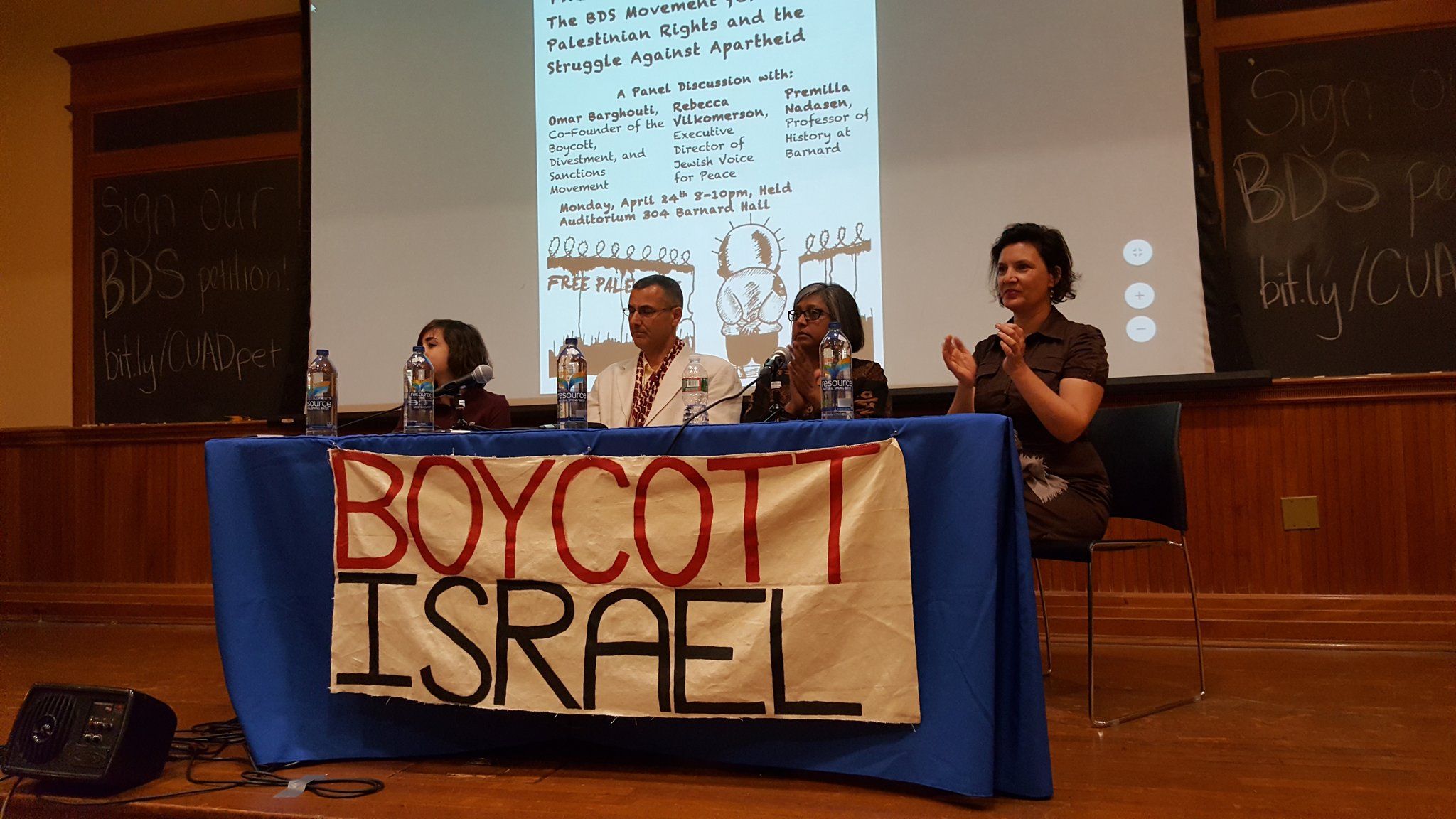After receiving the Gandhi Prize at Yale on Sunday, Omar Barghouti traveled to New York City for two public meetings on the BDS movement. The first, hosted by Jewish Voice….

After receiving the Gandhi Prize at Yale on Sunday, Omar Barghouti traveled to New York City for two public meetings on the BDS movement. The first, hosted by Jewish Voice for Peace, Columbia University Apartheid Divest, and Students for Justice in Palestine at Columbia University, was a panel discussion, held at Barnard College, entitled “The Road to Freedom: The BDS movement for Palestinian rights and the struggle against apartheid”. Barghouti shared the stage with Rebecca Vilkomerson, Executive Director of Jewish Voice for Peace, and Premilla Nadasen, Professor of History at Barnard.
Although he has not often been back to New York since he obtained his engineering degree at Columbia, Barghouti’s face is familiar on university campuses in the United States. The crowd, consisting mainly of Barnard and Columbia students, began to cheer when he took his place on stage, and he received two standing ovations before the evening was over. The Barnard administration, claiming concern about possible disruption — apparently after reading an article about the event on the extreme right-wing website Breitbart! — decided at the last minute to restrict attendance to holders of Columbia (and Barnard) identification cards, with outsiders permitted to reserve 50 places. The organizers viewed the restrictions as a form of censorship; nevertheless, nearly all the 200 places in the auditorium were occupied, and a handful of Israel supporters stood at the back of the room, occasionally displaying handwritten signs reading “FALSE,” “LIES,” and “ANTISEMITISM.”
Professor Nadasen was born in South Africa and she talked about her childhood under apartheid, her anti-apartheid activism as a student at the University of Michigan, and her present commitment to the Palestine solidarity movement. Vilkomerson devoted much of her presentation to the place of Palestine in the mass movement that has arisen in reaction to Trump’s presidency. Barghouti began his talk by explaining his reasons for hope: when he was a Columbia student, he did not believe he would see the end of South African apartheid in his lifetime, but he considered it his moral duty to protest. And South African apartheid did end. In the rest of his presentation he reported on recent developments in the BDS movement — notably last week’s vote by the Barcelona City Council — and characterized BDS as a branch of the long-term international struggle for human rights and for the respect for international law.
There were a few hostile questions from the back of the room. Barghouti had clearly heard them many times before, and his answers were so clear and decisive that I couldn’t help wondering why the protesters bothered going through the motions. I had seen Barghouti and Vilkomerson at a New York event two years ago. Then, as now, the audience response was overwhelmingly favorable, but I had the feeling that this year they were speaking with much greater confidence, sensing that public opinion was increasingly on their side. And on college campuses in the United States, and among the younger generation of American Jews, this is undoubtedly the case.
Barghouti’s speaking tour takes him to Verso Books in Brooklyn tonight (April 25). He will also be speaking at Harvard University and in Washington, D.C. before returning to his home in Palestine.
Michael Harris,
Professor at Paris-Diderot and Columbia Universities,
Secretary of AURDIP
